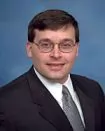In 2014, we at Troutman Sanders were honored to have represented our clients in some of the most cutting-edge and exciting renewable energy projects in the United States. Our reach spanned 19 states and accounted for approximately 3,000 MWs.
As we enter 2015, we are taking a look back at the biggest trends and challenges we observed during our work in 2014 in the form of a 2014 Troutman Sanders Renewable Energy Market Recap. From the rise of yield cos to the increased use of virtual net metering, 2014 was an exciting year for renewable energy. During 2014, we saw the demand for renewable energy development boom as the incentives landscape continued to change and companies and governments searched for low-cost capital sources to meet their needs with cost-effective and sustainable solutions.
Over the past year, we note that many of our transactions were structured as partnerships, bringing utilities' tax appetite to the structure. We saw utilities partner with sponsors for long-term tax and cash sharing arrangements not dissimilar to partnership flips, except where the parties have a long-term interest in remaining owners of the project. In 2014 we saw several tax equity partnership transactions in which the tax equity investor retained a significant residual interest in the projects in the post-flip period.
Some other major themes and trends we noticed in 2014 include an uptick in virtual net metering, the rise in project development in the Northeast, growing concern over the "duck curve," an increased focus on energy storage, significant environmental developments regarding endangered species and wetlands, increased military installations, issues related to the California property tax exclusion for solar projects, and the extension of tax provisions and REIT regulations in general.
Our 2014 Troutman Sanders Renewable Energy Market Recap gives a snapshot of these renewable energy market trends and what the industry has to look forward to in 2015.
The content of this article is intended to provide a general guide to the subject matter. Specialist advice should be sought about your specific circumstances.





